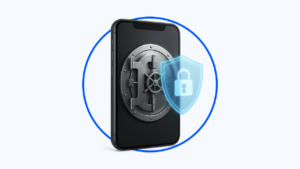How non-US citizens can open a bank account

Key takeaways
- Non-U.S. citizens can open bank accounts in the U.S., but it’ll require extra steps and documentation, especially if they’re nonresidents.
- Some banks and credit unions accept alternative forms of identification, such as an Individual Taxpayer Identification Number (ITIN), for non-U.S. citizens to open accounts.
- Opening a bank account can provide benefits such as lower fees, extra protection for your money and opportunities to build credit.
For the vast majority of consumers, a bank account is one of the basic tools for financial security. But accessing something as essential as a bank account can be a challenge when you don’t have a Social Security number.
Without a bank account, non-U.S. citizens face a range of serious difficulties in managing their finances, including figuring out how to keep their money safe and how to avoid high fees for check-cashing services.
Fortunately, it’s possible for non-U.S. citizens to open a checking account or savings account to prevent these issues, though it involves a bit more legwork and documentation than for U.S. citizens.
Required documents to open a U.S. bank account
To open an account, a bank or credit union needs to know it’s really you. It’s part of the U.S. government’s customer identification program, which sets the standards for how financial institutions should confirm their customers’ identities.
Verifying your identity will be different depending on the bank or credit union, but it typically involves providing the following:
- Photo ID
-
Eligible documents to prove your name and birth date include an unexpired passport, a Permanent Resident Card (Green Card) and a foreign driver’s license.
- Proof of address
-
A recent utility bill, formal letter with your name and address or employer paycheck can often serve as a proof of your current address.
- Initial deposit
-
Not all banks or credit unions require an initial deposit but many do. Wells Fargo, for example, requires a $25 minimum deposit to open an Everyday Checking account.
- Individual Taxpayer Identification Number (ITIN)
-
Many bank accounts pay interest, which is taxable income. Banks require an Individual Taxpayer Identification Number (ITIN) for nonresidents in order to supply information to the Internal Revenue Service (IRS) for tax-reporting purposes.
Many consumers are accustomed to doing tasks online, including opening a bank account, but non-U.S. citizens will likely find that’s not possible.
“Online account opening systems do not work well with individuals without [a Social Security number], due to the nature of identifying questions,” says Rebecca Morris Hoeft, CEO and founder of St. Paul, Minnesota-based Morris Hoeft Group.
As such, non-U.S. citizens will likely need to go to a branch to open a bank account.
Alternative identification options
For a nonresident or noncitizen without a Social Security number, there are other options. Often, you may need to provide one or more of the following to verify your identity, including:
- A passport number and country of issuance
- An Alien Registration Number
- Visa or other U.S. immigration documents
- Driver’s license with photo
- School ID with photo
- U.S. Employment Authorization Card with photo
Non-U.S. citizens can apply for an ITIN, which is one of the most commonly used alternative forms of identification.
A passport is always a safe bet as your primary form of ID whether you're a resident noncitizen or nonresident. Your second form of ID is a little more flexible and can usually be your permanent resident card, a recent paystub or a driver's license from your home country. Driver's licenses from some countries might not be accepted by your preferred bank, so it's a good idea to call ahead and verify before visiting the local branch.— Seychelle Thomas, CFEI | Bankrate credit card writer
How to get an ITIN
The IRS provides an Individual Taxpayer Identification Number (ITIN) for people who need a U.S. taxpayer ID but don’t have, or can’t get, a Social Security number from the Social Security Administration.
This nine-digit number helps people meet their U.S. tax obligations and allow efficient recording of tax returns and payments for those who aren’t eligible for a Social Security number. An ITIN is provided regardless of a person’s immigration status, as U.S. tax filing or reporting might be necessary for both residents and nonresidents.
An ITIN can be obtained by applying through the IRS. With one of these numbers, noncitizens are able to file their taxes. An ITIN doesn’t authorize someone to work in the U.S. and is used solely for tax reporting purposes. Getting an ITIN requires completion of Form W-7. Mail the completed Form W-7 to the IRS, along with proof of identity and foreign status to:
Internal Revenue Service
Austin Service Center
ITIN Operation
P.O. Box 149342
Austin, TX 78714-9342
If you prefer not to mail the forms, you can take the form to an IRS-authorized Certifying Acceptance Agent.
The IRS issues ITINs through the mail, but it’s not a speedy process. Approval typically takes about seven weeks or more.
Banks and credit unions that accept alternative IDs
At first glance, many bank websites would seem to indicate that alternative IDs are not accepted. Though many of the biggest banks list a Social Security number as a requirement on their websites, it may only be necessary for opening an account online.
In some cases, banks will assist if you are missing a piece of information. Appointments can be scheduled with many big banks that accept an ITIN instead of a Social Security Number online, including:
- Bank of America – Online Appointments
- PNC Bank – Online Appointments
- Chase – Online Appointments
- Citibank – Online Appointments
Some credit unions also accept alternative IDs. DC Credit Union in Washington, for example, offers a SAFE Checking Account, specifically for non-U.S. citizens. Because the account earns no interest, it doesn’t require a tax ID number — only a foreign ID.
Bank document requirements and identification policies may vary. For instance, Integrity Bank & Trust, which has its headquarters in Monument, Colo., doesn’t require an individual to have a social security number or an ITIN to open an account. “There are a few key items that are commonly overlooked,” says Susan Tillotson, retail development specialist at Integrity Bank & Trust. “We require proof of their U.S. address and the application if the individual has applied for an SSN or ITIN. Be prepared to explain the expected account activity.”
Another option for non-U.S. citizens to consider is a Bank On account, offered as part of the banking industry’s push to welcome unbanked customers. In addition to having low fees and no overdraft fees, one of the standards Bank On lists as “strongly recommended” is that participating banks and credit unions accept alternative IDs.
But the acceptance of an ITIN or foreign ID to open an account isn’t the only point that matters for non-U.S. citizens. It’s also important to compare fees and minimum balance requirements attached to those accounts. Read Bankrate’s guide to avoiding bank fees to avoid paying too much money to stash and manage your cash.
The benefits of opening a bank account
Filling out forms, going to an agent’s office and waiting for nearly two months may sound like a hassle, but the benefits of a bank account outweigh those troubles.
Some ways that bank accounts help consumers manage their money include:
- Lower fees: Without a checking account, cashing checks has to be done through check-cashing services or prepaid debit cards, which often charge high fees.
- Extra protection: Storing money in a bank account is much safer than keeping it in a drawer. If a bank is insured by the Federal Deposit Insurance Corp., or a credit union is insured by the National Credit Union Administration (NCUA), that means they offer federal deposit insurance up to $250,000 per depositor, per insured bank, per ownership category.
- Access to direct deposit: A checking account provides a convenient way to receive payments.
- Saving for the future: With a high-yield savings account, consumers can practice good habits for building up their wealth over time and staying prepared for emergencies. Some savings accounts allow for six withdrawals each month under Regulation D (in April 2020, the Federal Reserve removed the limit to provide consumers increased access to funds, but many banks today still enforce Reg D).
- Credit-building opportunities: Establishing a good banking history can provide a gateway to larger life goals such as buying a car or owning a home.
Bottom line
The banking industry’s traditional identification requirements may seem like a barrier to non-U.S. citizens when trying to open a bank account, but numerous banks and credit unions accept alternative forms of ID to make it easier. Though obtaining an ITIN does mean some extra work, the ability to open a checking account and savings account — and in some cases, apply for a home loan — can make a meaningful difference in achieving financial security.
Why we ask for feedback Your feedback helps us improve our content and services. It takes less than a minute to complete.
Your responses are anonymous and will only be used for improving our website.







